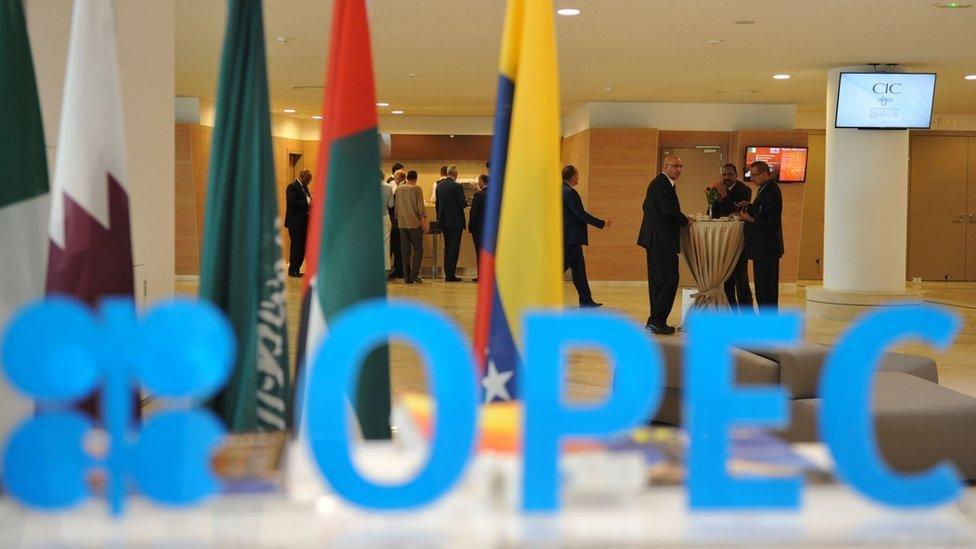Can Opec agree to raise the oil price?
- Published
Saudi Arabia wants Opec to cut oil output to drive up prices
Oil prices are too low for the taste of Opec, the Organization of the Petroleum Exporting Countries.
So the oil producers' group has agreed in principle to take action to try and lift the price, in the shape of a target for how much the member countries will produce.
A meeting of the group's energy ministers in Vienna will try to hammer out the details. And that is where the devil lies.
Opec currently consists of 14 members, more than half of them in the Middle East and North Africa, including the organisation's biggest player, Saudi Arabia.
The background to what is likely to be a difficult meeting, is an oil price hovering around the mid-$40 a barrel. While that is well up from the lows it hit early this year of around $26 a barrel it is still less than half the level it reached in June 2014.
Perhaps more importantly, it is far too low for the government finances of Opec countries.
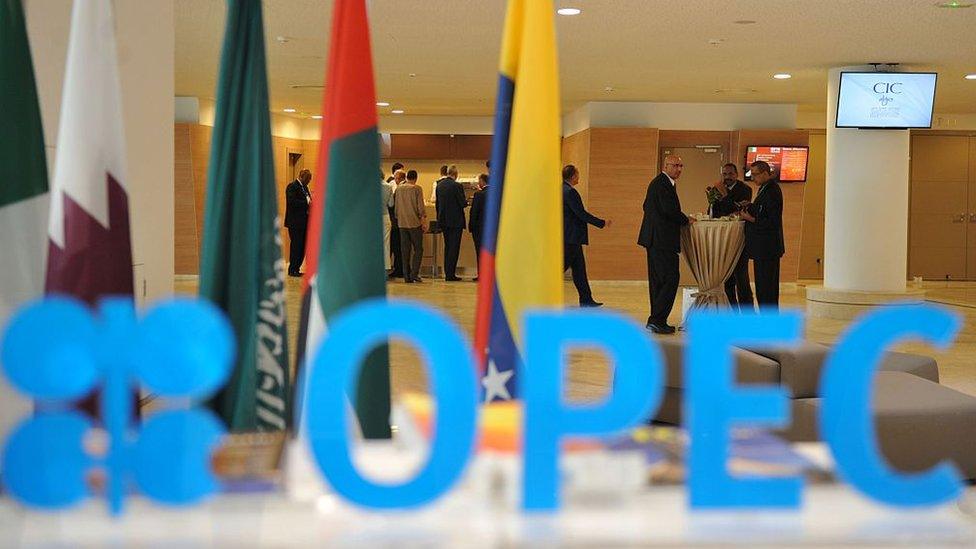
Opec producers will try and hammer out an agreement at this week's meeting
It has taken the group a long time to agree that they will try to put some sort of restraint on production.
US shale's impact
It has been the rise of the US shale industry in the last ten years that has been one of the main factors driving prices lower. It completely transformed the market in the US for crude oil.
The US now needs to import less oil and this impact has reverberated throughout the international crude oil market.
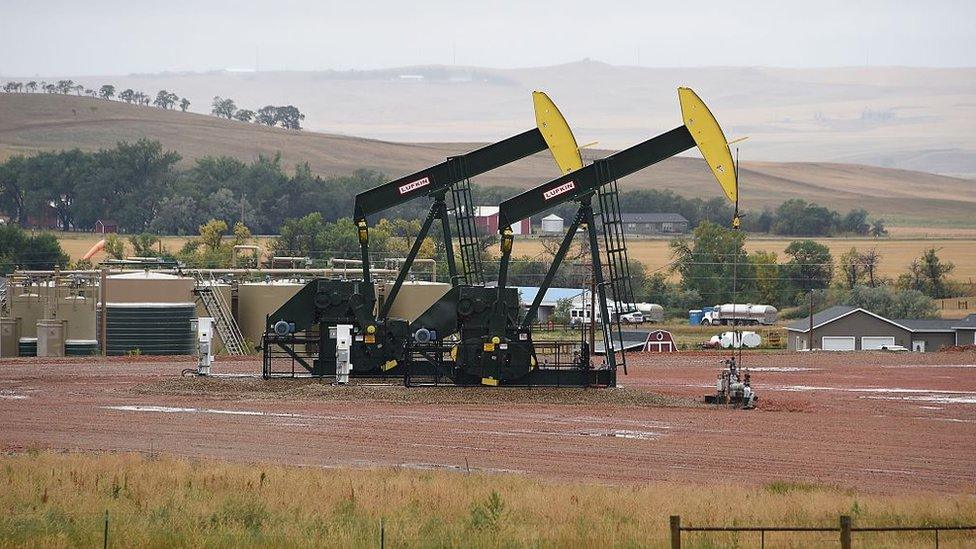
In 2005, the US produced a third of its own crude oil, last year it managed more than 60%
When prices fell Opec sat on their hands. The group did not cut production as in previous episodes of falling prices in an attempt to reverse what many regard as an unwelcome development.
It is true that some Opec members would have liked to see production cuts - especially if the effort were led by Saudi Arabia as it had often been in the past - but the all-important Saudis were reluctant.
This was partly because they wanted other Opec producers to take more of the burden of cutting, it is thought - and partly to hurt the American industry.
The Saudi strategy was said to be to allow prices to stay low to hurt US shale oil producers and force some out of business. But the strategy of maintaining the price pressure on US shale failed to get the results the Saudis wanted.
Yes low prices have made some difference. Crude oil production in the US (the total including both shale and more conventional wells) is 6% lower this year, external. The International Energy Agency predicts another modest decline in 2017.
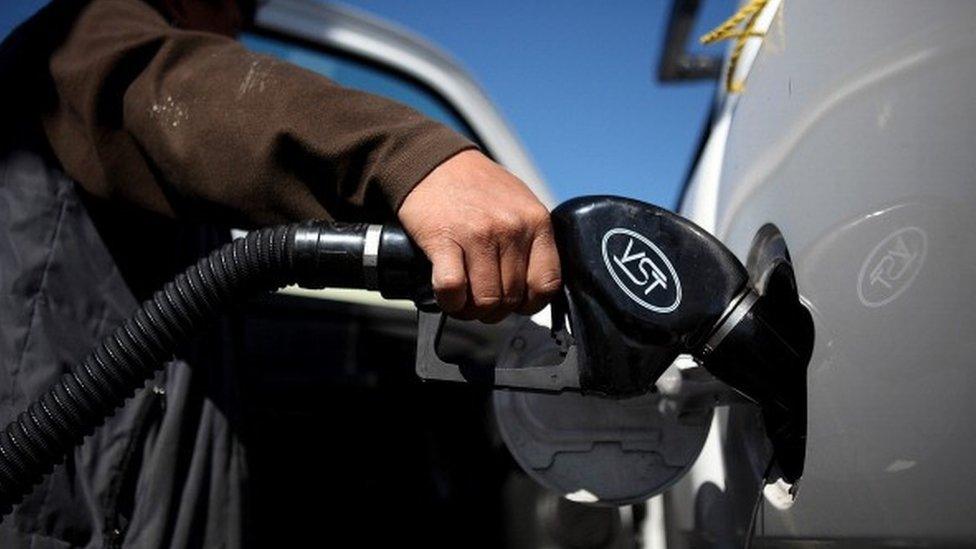
Opec countries are often keen to see higher prices, but less keen to make production cuts themselves
But it has not been enough to get prices to anything like the kind of level that Opec member countries want. And it has taken time for the decline in the US to come though.
The price fall started in mid-2014, yet US production rose in the following year - when prices were sharply lower. In fact, the US is still producing more than it did in 2014.
Agreement in principle
So now the Saudis have agreed in principle to go along with the more traditional Opec approach of cutting production in response to prices they consider too low, in a bid to drive them higher.
At a meeting in Algiers, external in September they agreed in principle to a new production target of 32.5 to 33 million barrels a day.
But according to the International Energy Agency, external the group produced more than that in October - a total of 33.83 million barrels a day.
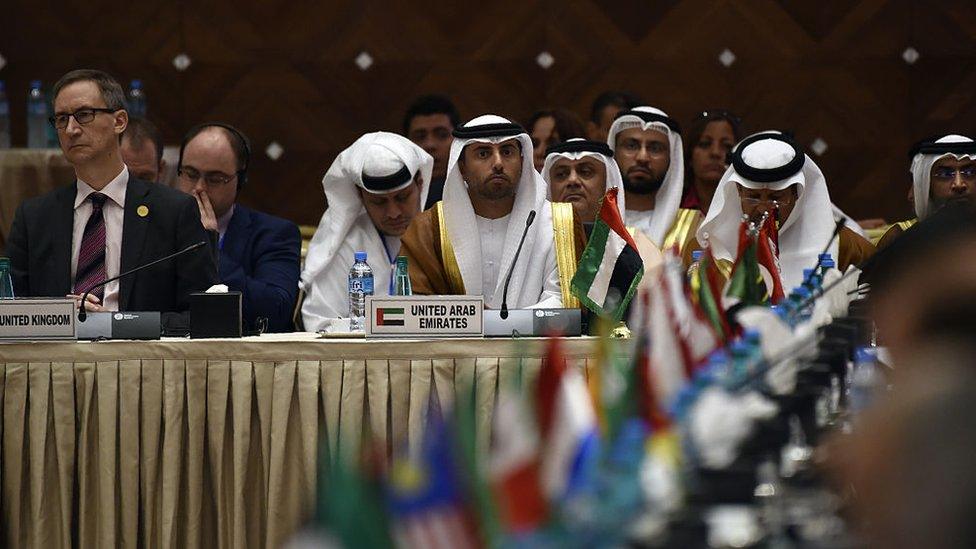
In Algiers in September Opec agreed to a new production target - in principle
So Opec would need to make more cuts if they are to actually implement an agreement consistent with this new target. And they appear to be struggling.
Ahead of the minsters' gathering at Opec headquarters in Vienna, officials have been trying to pave the way for a deal.
But reports suggest it is proving difficult. As always with Opec, countries are keen on the higher prices an agreement would yield, but less keen to make the production cuts themselves.
Several have reservations about reducing their own output, including Iraq and Iran - which is reluctant to accept restrictions as it tries to regain a share of the market after emerging from US sanctions.
In addition, Opec would like some non-members, notably Russia, to cooperate and make cuts themselves.
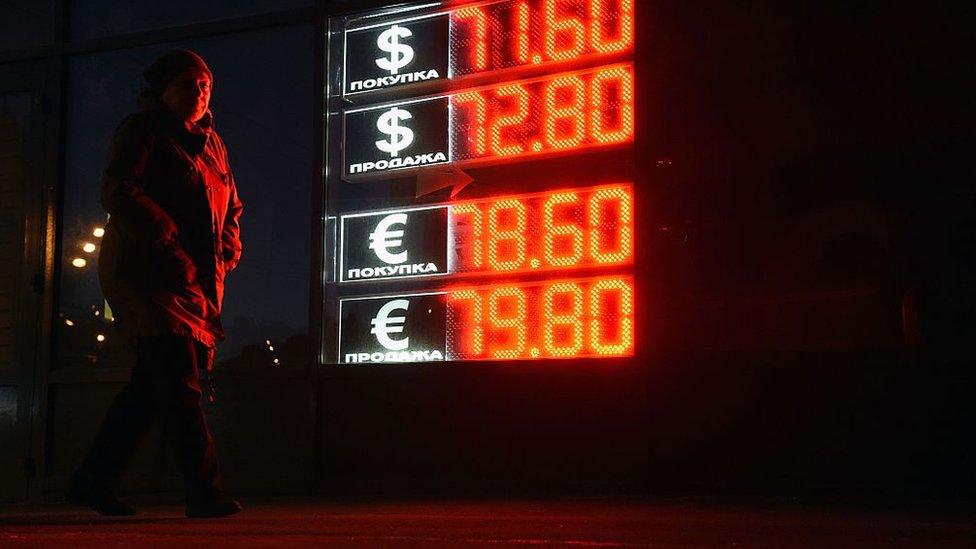
Russia may not be an Opec member, but the group wants it to join in with production cuts
So a deal won't be easy to achieve in Vienna and even harder to implement. Opec members have a history of failing to comply with their own output limits.
Some commentators think they will manage some sort of face-saving compromise that doesn't commit any of them to departing very far from the production levels they were planning anyway.
Some say the danger for Opec is that if they can agree something that pushes prices up, American shale producers will be able to make advance sales, or "hedge" at those higher prices.
That would enable them to keep producing without being hit even if prices do slip back later - which could happen if Opec fails to comply with any production limit to which it might agree.
- Published10 October 2016
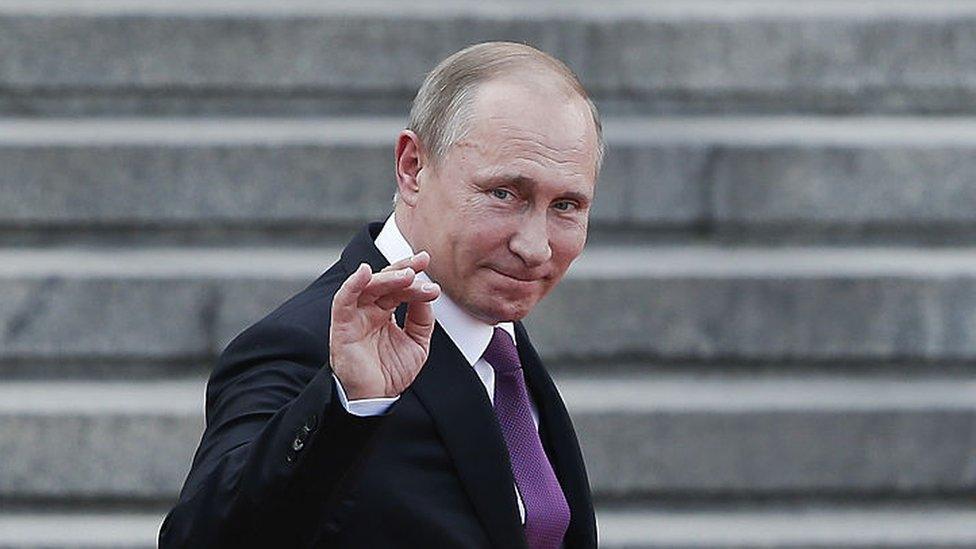
- Published30 September 2016
